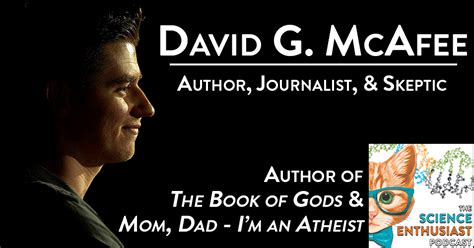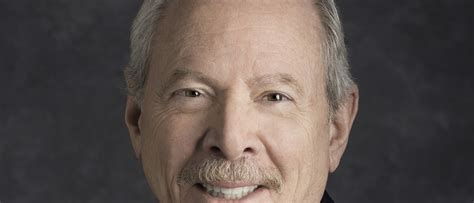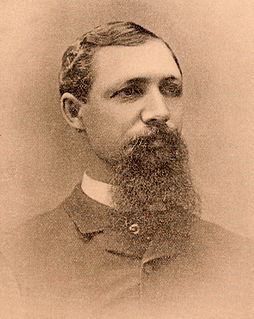A Quote by William Lane Craig
The simple fact that the Christian fellowship, founded on belief in Jesus' resurrection, came into existence and flourished in the very city where he was executed and buried is powerful evidence for the historicity of the empty tomb.
Related Quotes
We have often asserted, and we affirm it yet again, that no fact in history is better attested than the resurrection of Jesus Christ from the dead. It must not be denied, by any who are willing to pay the slightest respect to the testimony of their fellow-men, that Jesus, who died upon the cross, and was buried in the tomb of Joseph of Arimathea, did literally rise again from the dead.
The evidence for the resurrection of Jesus Christ is more powerful than anything else we believe. By His resurrection Jesus proved He is who He says He is. Be confident in this truth. Stand on the Holy Word of God. Don't sell the world a false bill of goods. Preach the word. Defend the faith. Live the faith.
No tabloid will ever print the startling news that the mummified body of Jesus of Nazareth has been discovered in old Jerusalem. Christians have no carefully embalmed body enclosed in a glass case to worship. Thank God, we have an empty tomb. The glorious fact that the empty tomb proclaims to us is that life for us does not stop when death comes. Death is not a wall, but a door.
My eyes are constantly wide open to the extraordinary fact of existence. Not just human existence, but the existence of life and how this breathtakingly powerful process, which is natural selection, has managed to take the very simple facts of physics and chemistry and build them up to redwood trees and humans.
If all the evidence is weighed carefully and fairly, it is indeed justifiable, according to the canons of historical research, to conclude that the sepulcher of Joseph of Arimathea, in which Jesus was buried, was actually empty on the morning of the first Easter. And no shred of evidence has yet been discovered in literary sources, epigraphy, or archaeology that would disprove this statement.
Christian apologists who argue that a story about an empty tomb is convincing evidence of a resurrected body are likely unfamiliar with Occam’s razor, which states that among competing hypotheses, the hypothesis with the fewest assumptions should be selected. They assume that the most likely explanation is miraculous resurrection through some unproven divine connection, but more likely scenarios include a stolen body, a mismarked grave, a planned removal, faulty reports, creative storytelling, edited scriptures, etc. No magic required.
A lot of religious belief - even the majority - involves making factual claims about the world which do come into conflict with science and history. For Christians, a test of this is the Empty Tomb. I ask Christians: 'are you saying that it does not matter - as a matter of fact - whether or not Christ's tomb was empty and that he was resurrected?' At that point, I find that, to a lot of them, it really does matter, despite all the fine talk about not wanting to confuse science and history with religion.
About six years ago, Life magazine ran an article on the historicity of Jesus and I was floored to find that they conceded the only evidence we have for his existence is in the Gospels. But don't take Life's word for it. In his book The Quest of the Historical Jesus, the most definitive study that's ever been done on the subject, Albert Schweitzer admitted that there isn't a shred of conclusive proof that Christ ever lived, let alone was the son of God. He concludes that one must therefore accept both on faith.
The foundation of our belief is a basis of fact - the fact of the birth, ministry, miracles, death, resurrection by the Evangelists as having actually occurred, within their own personal knowledge it was therefore impossible that they could have persisted in affirming the truths they have narrated, had not Jesus actually rose from the dead, and had they not known this fact as certainly as they knew any other fact.
Evolution is far more than a belief or an educated guess about how people came to be as they are. It is, in fact, the product of converging evidence from many, many different fields of science. Many, many thousands of studies that, in fact, have provided a theory, an organizing principal in fact, that describes how humans came to be.
Zagreus was the son of Zeus. He was slain by the Titans, buried at the foot of Mount Parnassus, and rose from the dead as Dionysos. He was the god of fruit and wine. Like those of Christ his most devoted followers were women. He is the beloved son and occupies a throne at the right hand of his father, Zeus. His empty tomb at Delphi was long preserved by his devotees as proof of his death, and resurrection.
I think the fault is more with historicists who have stubbornly failed to develop a good theory of historicity. By simply resting on the feeble laurels of prima facie plausibility ('Jesus existed because everyone said so') and subjective notions of absurdity ('I can't believe Jesus didn't exist!'), the existence of Jesus has largely been taken for granted, even by competent historians who explicitly try to argue for it.








































